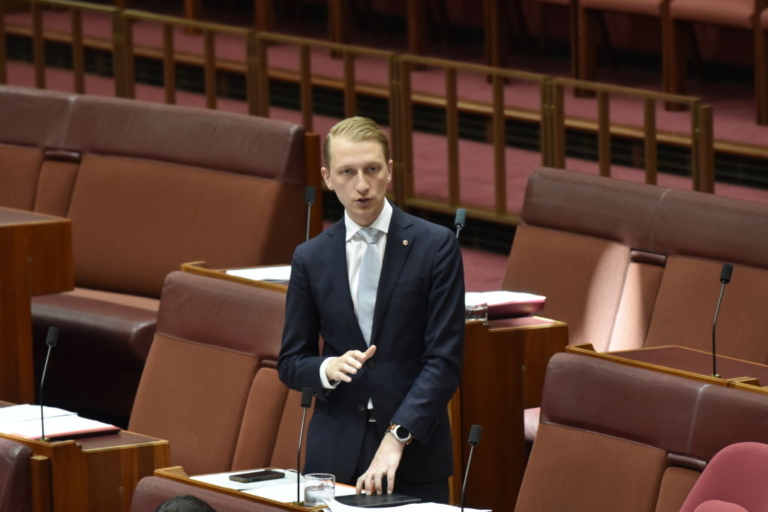The Australian government has stated that its relationship with China will not return to what it was in 2016, before the diplomatic fallout between the two sides.
This comes as Prime Minister Anthony Albanese is currently visiting China to mend the bilateral relationship and discuss trade issues.
Mr. Albanese landed in Shanghai on Nov. 4 evening, marking the first visit of an Australian prime minister to China in seven years.
In an interview with Sky News Australia, Assistant Foreign Affairs Minister Tim Watts said the prime minister’s visit was a significant event aiming to deliver the results for the Australian people.
“This visit allows for high-level engagement on the issues that matter for Australia. And dialogue in itself is important,” he said.
“It’s a way for us to find those areas, to cooperate. And high-level dialogue like this is the best possible opportunity for us to pursue that approach.”
Nevertheless, the assistant minister said that the federal government was not attempting to reset the relationship between the two countries but was rather aiming to stabilise it.
“It’s not possible to turn back time. We can’t reset the relationship to what it was back in 2016, and the reason for that is because now it is not possible to separate those previously distinct trade and strategic policy issues,” he said.
“We see very clearly that China pursues a coordinated international strategy across its trade and strategic policy levers.
“That’s the reality of the new world that we operate in. So, we need to recognise that and adapt our own response.”
Mr. Watts also noted that a stabilised relationship with China would allow Australia to protect its national interests and sovereignty as well as pursue strategic foreign and defence policies in the region.
Government Concedes to CCP: Opposition
The Opposition claimed that the Labor government had made a number of concessions to Beijing prior to the prime minister’s visit to China.
Opposition spokesman for Home Affairs James Paterson said the federal government had withdrawn its complaint of the Chinese regime’s tariffs on Australian barley and wine through the World Trade Organisation (WTO), which he said was beneficial to the Chinese Communist Party’s image of upholding the international rules-based order.
“Australia withdrawing our compliance or pausing our compliance under those mechanisms is an important concession very much welcomed by the Chinese government,” he told Sky News Australia.

Mr. Paterson also pointed to the Labor government’s recent decision not to tear up a 99-year lease of the Port of Darwin by a Chinese company and its “muted” criticism of China on human rights and the South China Sea issues.
In 2015, the Northern Territory government leased Port of Darwin, which is an important strategic asset, to a Chinese-based group in 2015 for $506 million (US$329 million).
The contentious decision sparked widespread criticisms and objections at the time.
In late October 2023, the Labor federal government announced that it would not overturn the lease, raising concerns about risks to Australia’s security.
In addition, citing China’s human rights record, Mr. Paterson warned that Australia needed to be clear-eyed when dealing with the Chinese regime and should not seek a reset in the relationship.
“We now have the benefit of understanding exactly what the Chinese government has done in Xinjiang to the Uyghur people. We’ve now seen what they’ve done in Hong Kong. We know what they’ve threatened to do against the people of Taiwan,” he said.
“If we were to ignore that in the pursuit of a reset, that would be fundamentally damaging to our interests.”
Meanwhile, Mr. Watts rejected Mr. Paterson’s argument about the Labor’s withdrawal of the WTO complaints, saying that the government just suspended it to resolve conflicts by dialogue with Beijing.
He also noted that the Labor government had expressed its disagreement with the Chinese regime over human rights situations in Xinjiang, Hong Kong, and Tibet.
“We also have disagreements about the way that our region operates, and we have called out intimidation in the Taiwan Strait in the South China Sea as well,” Mr. Watts said.
From The Epoch Times

